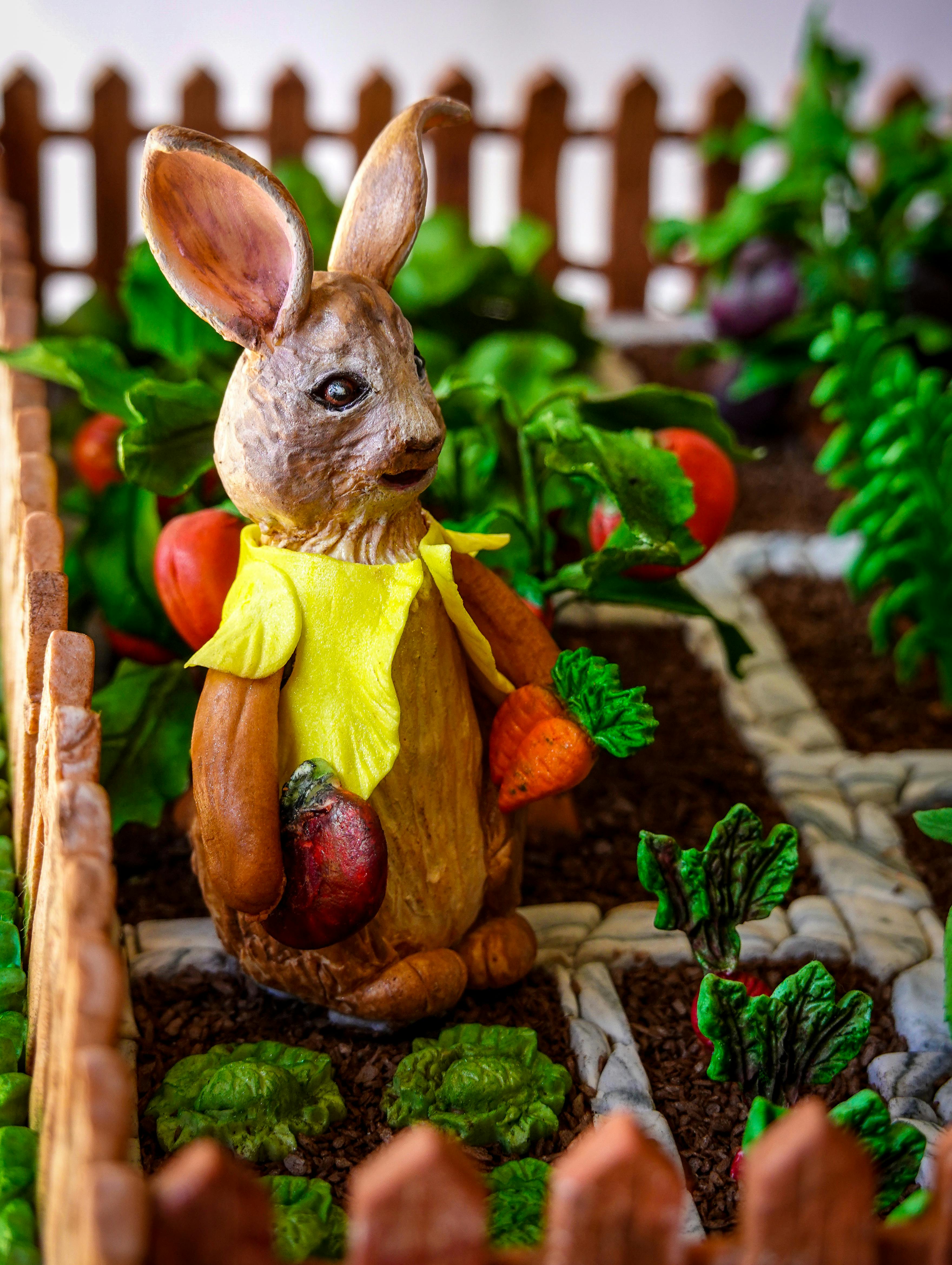Smart Ways to Improve Dwarf Hamster Care for Longevity in 2025

Smart Ways to Enhance Dwarf Hamster Lifespan in 2025: Practical Tips to Succeed

Dwarf hamsters are delightful little pets that not only bring joy to their owners but also teach important lessons about responsibility and care. As pet enthusiasts become more aware of how to prolong the lives of their furry companions, understanding the factors influencing their lifespan becomes crucial. Dwarf hamster lifespan can vary widely based on genetics, diet, environment, and health care practices. Knowing how to optimize these factors can help ensure your pet lives a long, healthy life.
In this article, we will explore practical tips that focus on enhancing the lifespan of dwarf hamsters. We'll discuss the average lifespan of a dwarf hamster, key aspects of their care, dietary needs, and common health issues. Additionally, we will provide insights into creating a suitable environment that can promote their longevity. The information is designed to educate both new and experienced hamster owners on making informed decisions for their pets.
Throughout the article, we will cover:
- Understanding dwarf hamster lifespan factors
- Optimal care practices for longevity
- Feeding and habitat essentials
- Signs of aging and health monitoring
By integrating these practices into your pet care routine, you can help your dwarf hamster reach their full life potential.
Understanding Dwarf Hamster Lifespan Factors
Before diving into care specifics, it's important to understand the factors that affect the lifespan of dwarf hamsters. The average lifespan of a dwarf hamster ranges from 2 to 3 years, but with adequate care, some may live even longer. Several influences come into play when it comes to their longevity.
Genetics and Species Variations
Different species of dwarf hamsters, such as Campbell's dwarf hamster and Roborovski hamsters, have distinct lifespans. The lifespan of a Syrian hamster typically averages around 2 to 3 years as well, but understanding the specific genetics of the dwarf species you have can give you insights into their potential longevity.
Diet and Nutrition
One of the primary factors impacting dwarf hamster lifespan is their diet. A well-balanced diet rich in essential nutrients can significantly enhance their health and longevity. For instance, the introduction of high-quality pellets, fresh fruits, and vegetables can make a substantial difference in their overall well-being. It's advisable to avoid sugary treats that may lead to health issues.
Environmental Influences
The habitat in which a dwarf hamster lives also significantly affects their life expectancy. Providing a clean, secure, and enriched living environment can reduce stress and promote overall health. Essential aspects include appropriate bedding, a comfortable temperature, and environmental enrichment, such as tunnels and exercise wheels.
By understanding these fundamental factors, pet owners can create a supportive environment that maximizes their hamster's potential lifespan. After establishing knowledge on lifespan factors, let’s explore the essential care practices necessary for maintaining a healthy and happy dwarf hamster.
Essential Care Practices for Longevity
Caring for a dwarf hamster involves more than just regular feeding. It requires a holistic approach that includes social interaction, mental stimulation, and proper health care. These practices can all contribute positively to dwarf hamster longevity.
Regular Health Checks
Routine health checks are vital in identifying and addressing health issues before they become severe. Regularly monitoring your dwarf hamster's weight, coat condition, and activity levels can provide insights into their health. If any unusual behavior arises, consider consulting a veterinarian specializing in small pets.
Social Interaction and Mental Stimulation
Dwarf hamsters thrive on social interaction. Regular handling and interaction can not only keep them mentally stimulated but also improve their overall quality of life. Providing toys and activities that encourage exercise and exploration can prevent boredom and foster a happy hamster.
Creating a Stress-Free Environment
Minimizing stressors in your hamster’s environment is crucial for their health. This might include keeping their cage in a quiet area, avoiding sudden loud noises, and providing plenty of hiding spots where they can feel secure. Reducing stress contributes significantly to a healthy dwarf hamster lifespan.
Next, we delve deeper into feeding practices that are essential for maintaining the health of dwarf hamsters. A well-reviewed diet plays a critical role in their overall lifespan and well-being.
Nutrition and Dwarf Hamster Diets
The importance of a well-balanced diet cannot be overstated when it comes to maximizing the lifespan of dwarf hamsters. Nutrition directly impacts their health and longevity.
Best Foods for Dwarf Hamsters
A rich diet for dwarf hamsters should include specially formulated pellets designed for their needs. Additionally, incorporating small amounts of fresh fruits and vegetables is essential for providing necessary vitamins and minerals. Avoid foods that are high in sugar or fat, as these can lead to obesity and related health problems.
Feeding Schedule
Establishing a feeding routine helps regulate your hamster’s metabolism and dietary intake. Typically, offering food once daily is sufficient. However, ensure that fresh water is available at all times, as hydration is crucial for their overall health.
Supplements and Vitamins
In some cases, a veterinarian may recommend beneficial supplements for hamsters, especially as they age. Assessing their diet periodically can highlight any deficiencies. A knowledgeable vet can guide you on safe options that can enhance their health.
With a proper understanding of diet established, it's essential to learn how to recognize the signs of aging and health issues in dwarf hamsters to provide timely care. Early detection can greatly influence their quality of life.
Recognizing Signs of Aging and Health Issues
Being proactive about health is crucial for extending a dwarf hamster’s lifespan. Recognizing signs of aging and potential health problems can lead to a better quality of life for your pet.
Signs of Aging in Hamsters
Aging in hamsters may be indicated by behavioral changes, such as decreased activity levels, changes in sleeping patterns, and difficulty with movement. Monitoring these signs allows owners to adapt their care to meet their hamster's evolving needs.
Common Health Issues
Common health issues in hamsters include dental problems, obesity, and respiratory issues. Regular check-ups with a veterinarian can help prevent or manage these problems effectively. Maintaining a clean habitat and providing an appropriate diet can also mitigate health risks.
Importance of Vet Care
Periodic vet visits are essential for maintaining hamster health. Vets can offer vaccinations and provide valuable advice on care as your hamster ages. Open communication with your vet will help you address health concerns before they escalate.
By understanding how to monitor your dwarf hamster’s health and recognizing potential challenges, you can ensure a better quality of life for your little companion. Now, let’s discuss how to create an optimal habitat that supports dwarf hamsters' longevity.
Creating an Optimal Habitat for Longevity
The environment in which a dwarf hamster is housed greatly influences their well-being and lifespan. A meticulously maintained habitat plays a crucial role in their overall health.
Housing Needs for Dwarf Hamsters
When selecting housing for your dwarf hamster, consider a spacious cage that offers plenty of room for exercise and exploration. Enrichment elements such as tunnels and platforms help create a stimulating environment, crucial for mental health.
Maintaining a Clean Cage
Keeping the cage clean helps prevent the spread of illness-causing bacteria. Regular cage cleaning should be a priority. Change bedding weekly, and remove any spoiled food immediately. This not only enhances living conditions but also promotes a healthier dwarf hamster lifespan.
Environmental Enrichment
Providing enrichment is essential for hamster happiness. Interactive toys, chewable items, and even a running wheel can provide the exercise and mental stimulation they thrive on. These activities can significantly decrease stress and promote a longer life.

After establishing a suitable habitat, understanding how to enhance the overall lifestyle of your dwarf hamster can lead to greater longevity. This involves both mental and physical well-being.
Enhancing Dwarf Hamster Life Through Active Living
Encouraging physical activity and engagement in social behavior is vital for dwarf hammies. The right balance in their lifestyle can foster health and happiness.
Exercise Needs of Dwarf Hamsters
Exercise wheels for dwarf hamsters are an excellent way to promote physical activity. Ensure that the wheel is appropriate for their size to prevent injuries. Additionally, scheduled playtime outside the cage can enrich their daily routine.
Social Behavior and Companionship
Dwarf hamsters are social creatures by nature. If cared for correctly, they enjoy interacting with their human companions and can even thrive with cage mates—albeit under the right conditions. This social interaction is important for their mental and emotional health.
Common Mistakes to Avoid
Be mindful of common mishaps, such as overcrowding the cage or introducing new hamsters without proper introductions. Stressful situations can negatively impact health and may shorten lifespan; therefore, laid-back and gradual approaches yield the best outcomes.
Q&A Section
How long do dwarf hamsters live?
The average lifespan of a dwarf hamster is typically 2 to 3 years, though some may live longer with excellent care.
What affects hamster lifespan?
Factors influencing hamster lifespan include genetics, diet, environmental conditions, and health care practices.
What are signs of a healthy dwarf hamster?
A healthy dwarf hamster typically exhibits active behavior, clear eyes, a clean coat, and regular eating and drinking habits.
How can I monitor my hamster’s health?
Routine health checks involving weight monitoring, observing activity levels, and checking for any changes in behavior can help keep track of your hamster’s health.
What should I include in a dwarf hamster diet?
A balanced diet for dwarf hamsters should consist of quality pellets, fresh fruits, and veggies. It’s essential to avoid high-sugar or fatty foods.
By implementing these effective tips and practices, you can enhance your dwarf hamster's lifespan and ensure a joyful, healthy life for your little companion. Always keep learning and adapting your care strategies to maximize their longevity and well-being.